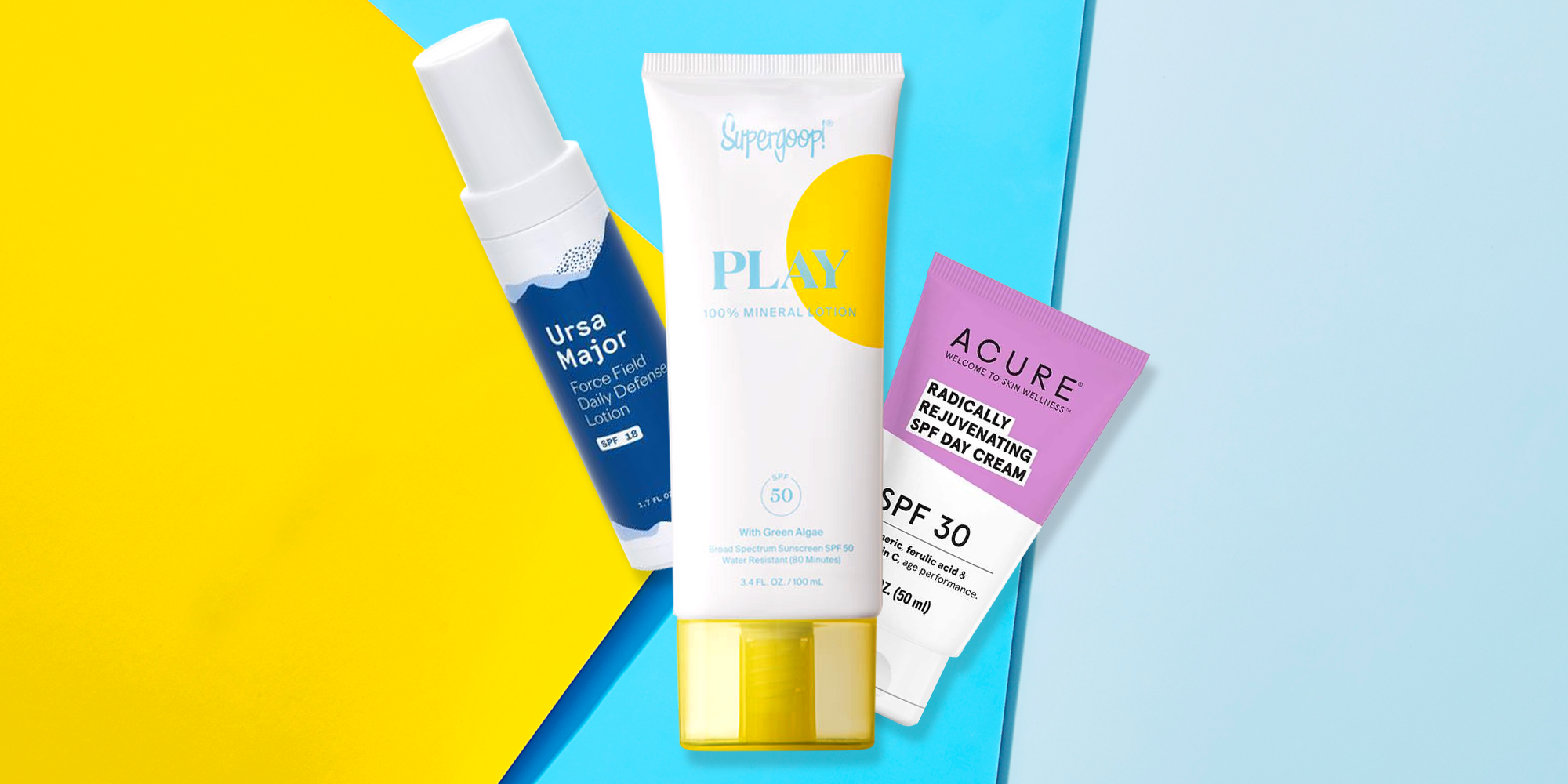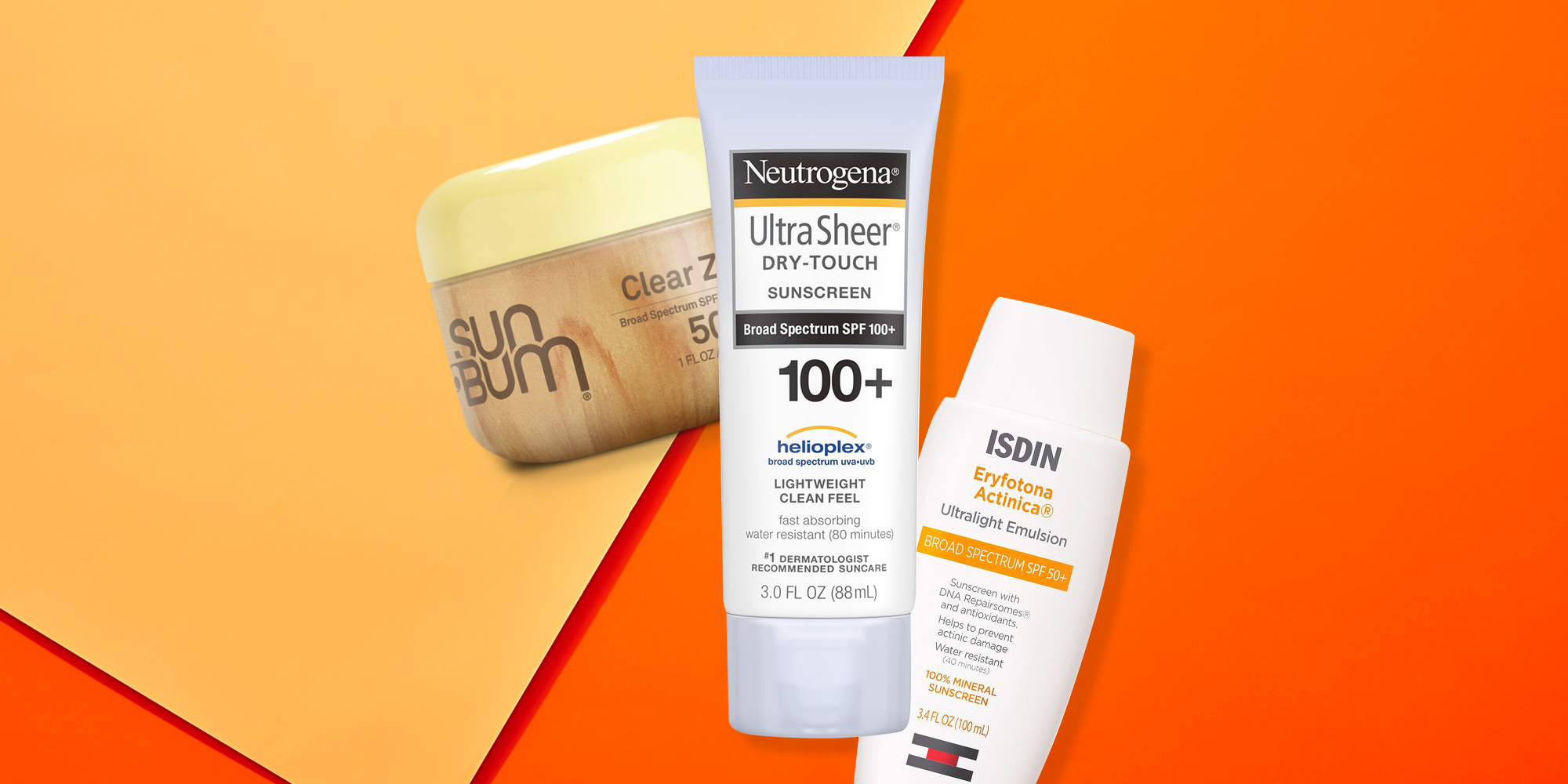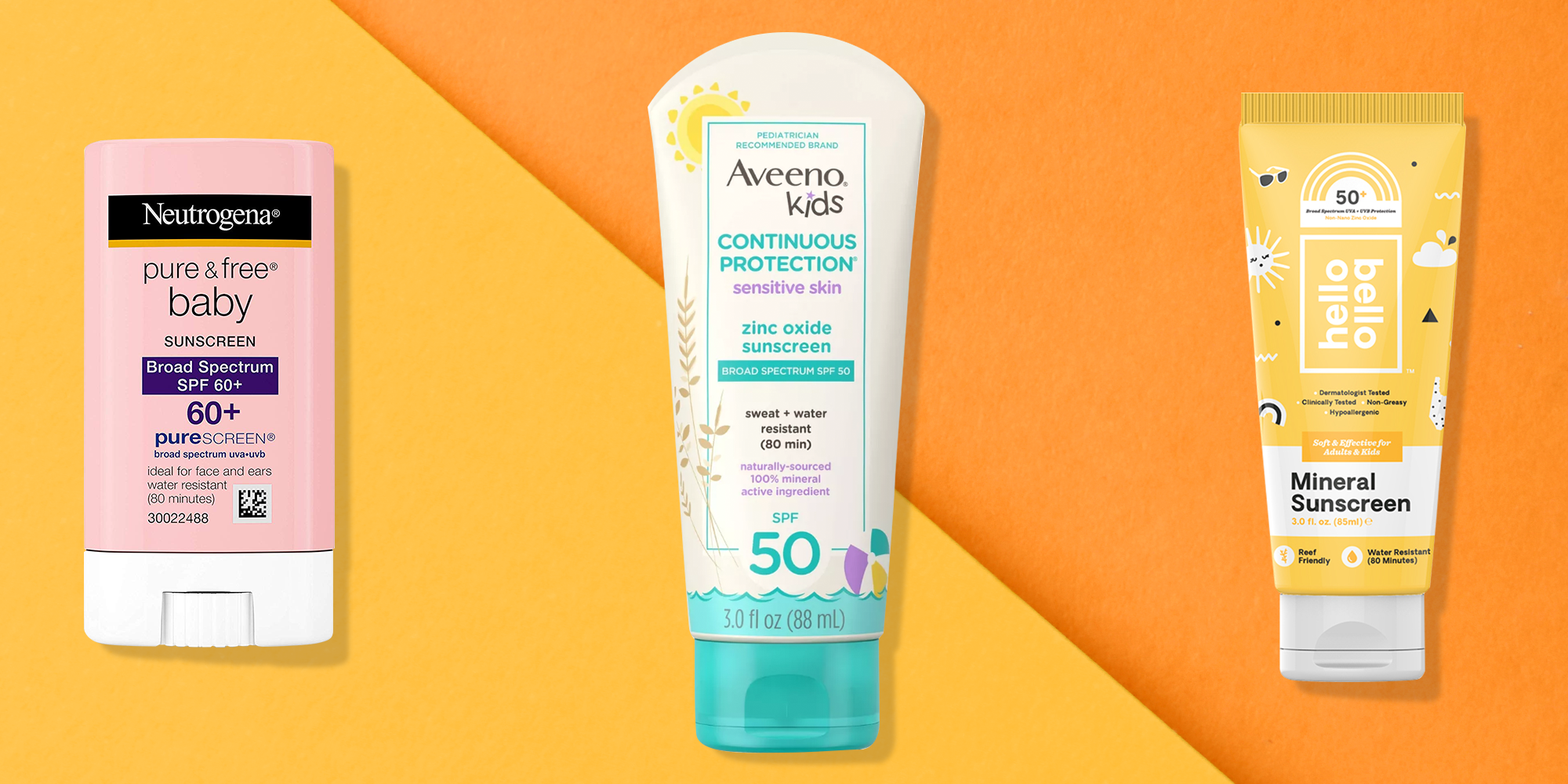Yes, You Can Have A Sunscreen Allergy—Here’s What To Do If Sunblock Irritates Your Skin
Whether you’re planning a mid-winter tropical getaway or basking in the glorious days of summer, you’ll need to think about sun protection. It’s smart to arm yourself with sunscreen that’ll ward off skin cancer-causing UVA and UVB rays, as well as itchy, uncomfortable sunburns that can easily ruin any time in the sun.
But, weirdly enough, sunscreen can actually cause irritated skin for some people. And not just in people with sensitive skin—for some, applying sunscreen can lead to a full blown allergic reaction. If sunscreen doesn’t always agree with you, here’s what you need to know about sunscreen allergies and how you can stay protected in the sun without lotion, straight from dermatologists.
Can you be allergic to sunscreen?
Yes, a sunscreen allergy is a real thing, and it’s pretty common, doctors say. But it’s not just any sunscreen that will cause a negative reaction—it’s typically the chemical-based ones that are problematic. “I recommend avoiding chemical-based sunscreens for the face, especially the ingredients avobenzone and oxybenzone [two key irritants],” says Lisa Stirling, MD, a board-certified dermatologist in Encinitas, California, and medical advisor foreMediHealth.
Basically, sunscreens containing chemical ingredients ending in “benzone,” or those that include cinnamate, might cause issues for allergy-prone people, says Suzanne Friedler, MD, board-certified dermatologist with Advanced Dermatology PC and clinical instructor of dermatology at Mount Sinai Medical Center.
You can develop an allergic response to sunscreen at any time—even if you’ve never had an issue with it in the past—but it’s more likely if you already have sensitive, dry, or rash-prone skin. “Certain chemicals in sunscreen cause an immune reaction,” says Dr. Stirling, and if you’re already experiencing some immune response due to general sensitivity, it’s more likely to escalate when you add chemicals to the mix, she explains.
What are sunscreen allergy symptoms?
With a sunscreen allergy, you may experience any combination of:
- Rash
- Itching
- Stinging
- Burning
- Redness
- Bumps or irritation
In some cases, you might break out in hives or even feel like you have a sunburn. “Sometimes, the chemical ingredients in sunscreen can cause a photo-allergic reaction, which appears like a sunburn,” Dr. Stirling says.
In that case, you could see the “sunburn” pop up wherever you applied the sunblock, but typically, it manifests itself on your face or chest. You’ll likely feel the same itch and burning of a sunburn, too. But you’ll know it’s not a bad sunburn because the reaction may happen before you’re even out in the sun, or when you’ve reapplied multiple times and have stayed out of direct sunlight.
What can you do to treat a sunscreen allergy reaction?
First, you may want to specifically test what chemicals in the sunscreen are triggering your skin’s reaction. Dr. Stirling suggests visiting a dermatologist to have patch testing done for certain chemicals (your derm will add tiny patches containing the substance in question to your back to see what you react negatively to), especially if your skin is ultra-sensitive or if you have been having reactions already. That way, you’ll know which sunblock to stop using immediately.
You can develop an allergic response to sunscreen at any time—even if you’ve never had an issue with it in the past.
Once you’ve cut yourself off from the sunscreen, it’s a good idea to strip down your skincare routine (and while you’re at it, remove other products from your lineup that may be heavy in chemicals—especially fragrance), Dr. Stirling says. “I recommend using hydrocortisone ointment twice daily for a week to decrease the inflammation and itching,” she adds.
Keep your cleansing and moisturizing super simple—that means products that are gentle, fragrance-free and hypoallergenic, says Dr. Stirling) while you’re healing. So, it may not be the time to try that new exfoliating mask. Ideally, the rash, redness, and irritation should dissipate in about two weeks. If it doesn’t, or gets worse, that’s when should you go back to a dermatologist to be re-evaluated, Dr. Stirling says.
How can you prevent a reaction?
If you’ve had patch testing at your derm’s office, you should have a good idea of which ingredients are irritating your skin. Then, the next step is to read, read, read those labels (you may need to take some extra time in your local pharmacy for sunscreen selection) to avoid those ingredients.
The keys when shopping are to go fragrance-free (because fragrance generally equals chemicals) and to look for a product with as few ingredients as possible. It’s a bit of a trial-and-error process. Then, when you start using a new sunscreen, Dr. Stirling recommends using it on a small area of skin for two weeks to make sure you can tolerate it without any rashes or itching occurring before using it all over. So it’s probably best to test it out at home and make sure it’s a go before you take it on vacay.
If the reactions continue even with avoiding the typical inflammatory chemicals and using the cleanest, most simple sunscreen products, you may need to circle back to your derm for further patch testing with a different set of chemicals, Dr. Stirling advises.
What can you use for sun protection if you’re allergic to sunscreen?
Typically, your skin should be able to tolerate sunscreens with the main ingredients of titanium and zinc—those are usually even safe for people with rosacea and eczema, the docs say. Dr. Friedler recommends mineral sunscreens with titanium dioxide and zinc oxide. “They are cosmetically elegant, they apply smoothly, and are very sheer so they shouldn’t alter the color of your skin,” Dr. Friedler says.



The SPF number is important too, particularly for sensitive skin. Look for at least 50, advises Dr. Friedler, and broad-spectrum UVA and UVB protection to keep you covered. And it goes without saying to reapply when you’re actually in the sun. Also, you’ll want to make sure your sunscreen won’t cause you to break out. Go with a sunscreen that specifically says non-comedogenic on the packaging to avoid acne, Dr. Friedler says.
For extra sun protection, you may want to look into a supplement called Heliocare; this will help you avoid sunburn if you’re super sensitive. “Heliocare is an antioxidant derived from a fern plant and is available over-the-counter,” Dr. Stirling says. It works by strengthening your skin’s barrier against free radicals (which can increase the risk of skin cancer) from within. Wide-brimmed hats and bathing suits and wetsuits with UPF (ultraviolet protection factor) can help block sun exposure too, she adds.
Source: Read Full Article
